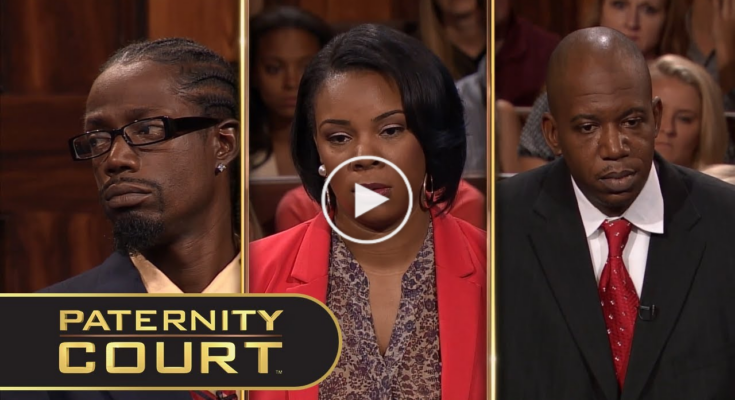Mr. Pace, the plaintiff, is emotionally invested in the case. He states, “I will be crushed if DNA results reveal that I am not the biological father of my son, Prince.” He has a close relationship with Miss Fobbs and Prince and does not want to let them down. He explains, “There is a lot at stake for me and my family.” His words reveal the depth of his feelings for Prince and his desire to be his father, despite the uncertainty surrounding his paternity.
Miss Fobbs, the defendant, admits to her actions, saying, “I slept with both Mr. Pace and Mr. Randolph,” but she still hopes that Mr. Pace is the biological father. Her admission adds a layer of complexity to the case, as it reveals that Prince’s paternity could be attributed to either man. Despite her actions, Miss Fobbs expresses a preference for Mr. Pace, indicating a deeper emotional connection with him.
Mr. Randolph, who is Mr. Pace’s best friend, is the potential second father of Prince. Miss Fobbs explains her relationship with him, saying, “I would often come home intoxicated from the club and would talk to Mr. Randolph, which eventually led to us sleeping together.” Her confession paints a picture of a complicated relationship dynamic, further complicating the paternity dispute.
Mr. Randolph admits to his mistake, saying, “I slept with Miss Fobbs, who is my best friend’s girlfriend. We were both intoxicated and not in the right state of mind.” When asked if the sex was unprotected, Mr. Randolph claims, “I was too intoxicated to remember.” He admits it only happened once and that it was a mistake. His admission reveals his regret and the potential consequences of his actions.
The judge in the case plays a crucial role, providing a balanced perspective and ensuring that justice is served. She asks Mr. Randolph if he submitted a childhood photo of himself and Prince to the court. Mr. Randolph confirms this and says, “We have some similarities in our appearance.” Miss Fobbs, however, does not see any resemblance, contradicting Mr. Randolph’s claim. This disagreement adds another layer of uncertainty to the case.
The climax of the episode arrives when the results of the DNA test are revealed, showing that Mr. Pace is not the biological father. The judge commends Mr. Pace for his actions, saying, “You stood up for Prince despite some uncertainty about his paternity.” The judge then criticizes Mr. Randolph for his actions, saying, “You made a mistake with your best friend’s girlfriend. I hope you have learned a lesson.” The judge’s words underscore the importance of responsibility and the consequences of one’s actions.
The episode’s popularity also speaks to the appeal of the Paternity Court show itself. The show’s format, which combines elements of courtroom drama with real-life stories, offers a unique viewing experience. It provides viewers with a glimpse into the personal lives of the individuals involved, while also educating them about the legal aspects of paternity disputes.
In conclusion, this episode of Paternity Court offers a compelling exploration of a complex paternity case. It delves into the personal stories of Miss Fobbs, Mr. Pace, and Mr. Randolph, the emotional turmoil they experience, and the quest for truth in the face of conflicting narratives. The episode also highlights the role of the legal system in resolving such disputes and the importance of parental responsibility. Through its exploration of these themes, the episode contributes to broader conversations about family, justice, and the welfare of children.
The episode ends on a note of uncertainty, with the revelation that Mr. Pace is not the biological father leaving the audience wondering about the future of the relationships between the characters. Despite the difficult circumstances, the characters express a desire to move forward and do what is best for Prince. This sentiment, along with the judge’s emphasis on responsibility and learning from one’s mistakes, provides a hopeful message for the audience. The episode serves as a reminder of the complexities of human relationships and the importance of truth and responsibility in navigating these complexities.



